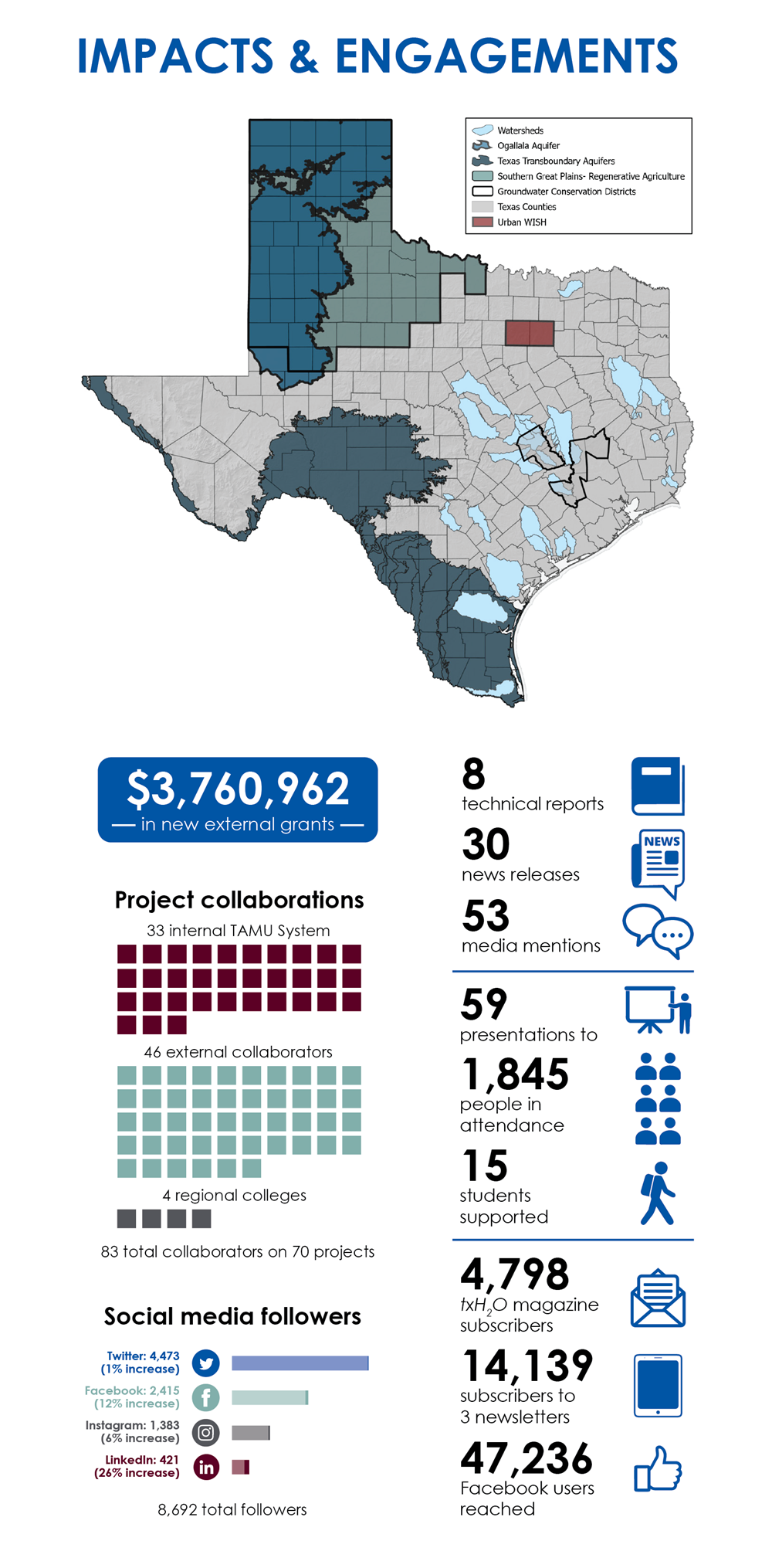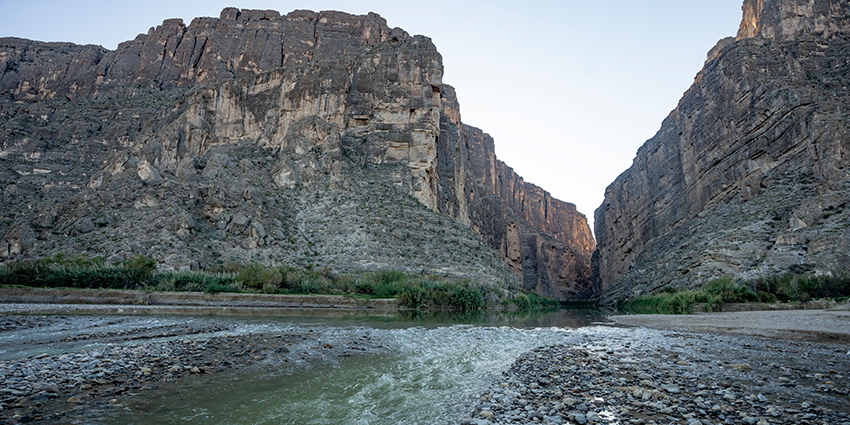The Texas Water Resources Institute (TWRI) has published its latest Annual Report, sharing accomplishments and project highlights from 2022.
For the past 70 years, TWRI has used internal expertise and external collaborations to provide science-based, community-supported solutions for Texas’ most pressing water quantity and quality challenges, and 2022 brought new and expanding opportunities for the institute to serve Texans.
Highlights from 2022
Neches River Basin work in 10 watersheds produces measured water quality improvements
In the Neches River Basin, TWRI is working in 10 watersheds to produce measured water quality improvements. Since 2009, TWRI has worked with local partners to understand and address excessive bacteria concentrations in the Neches River Basin. Their efforts in the basin include water quality monitoring, watershed characterization, pollutant loading estimation, bacteria source tracking, stakeholder engagement and educational events.
First-ever complete map of borderlands aquifers has international impact
Previously, the total number of shared groundwater aquifers flowing beneath the U.S.-Mexico border was thought to be 11. But new TWRI-led research has revealed a more complicated picture: there are, in fact, 72 shared groundwater aquifers in the region. Rosario Sanchez, Ph.D., TWRI senior research scientist, recently published the first-ever complete map of the transboundary aquifers by combining years of geological and hydrological research from over a decade.
Direct mailing outreach projects prove effective
TWRI is also measuring the effectiveness of using direct mailing for reaching landowners and increasing the adoption of conservation practices. We initiated our mailing education program in Lavaca County, where 4,921 landowners owning 10 acres or more received an educational postcard four times in six months. This resulted in a 300% increase in the adoption of Natural Resources Conservation Service practices in one year. Because of this success, we have replicated the message in watersheds across Texas, mailing to septic system owners encouraging septic pump outs and row-crop producers encouraging soil testing.
Faculty Fellows Program continues to grow
The TWRI Faculty Fellows Program began in the Winter of 2020, and the first awards were made in Spring 2021. From the first round of Faculty Fellows’ proposal submissions, a $10 million proposal to the U.S. Department of Agriculture’s National Institute of Food and Agriculture was awarded to TWRI Faculty Fellow Katie Lewis, Ph.D., principal investigator, associate professor of soil chemistry and fertility at the Lubbock center. This project focuses on sustainable agricultural intensification and enhancement, using regenerative agricultural management practices. In addition to Lewis, 2021-2022 fellows also included: Saurav Kumar, Ph.D., assistant professor, formerly with Texas A&M AgriLife Research Center at El Paso, Texas A&M Department of Biological and Agricultural Engineering; and Itza Mendoza, Ph.D., assistant professor, Texas A&M School of Public Health. In the Fall of 2022 two more faculty were named fellows, and both are developing proposals on researching various aspects of understanding PFAS in the environment and treatment methods.
Urban WISH initiatives thrive in North Texas
Launched in 2021, Urban Water Innovation and Sustainability Hub (Urban WISH) is a growing and productive TWRI initiative of the Texas A&M AgriLife Research and Extension Center at Dallas. Urban WISH is addressing North Texas’ current and future challenges in urban water security and sustainability through numerous projects focused on blue-green infrastructure (BGI) and green stormwater infrastructure (GSI), hydrologic modeling and spatial analysis, and urban water systems in dynamic water-climate conditions. The Community-Science Partnership to Enhance Stormwater Management and Equity project, funded by the National Science Foundation’s Civic Innovation Challenge (CIVIC) program, is developing a community of practice that will enhance urban adaptation to climate change.
Urban WISH staff are also making strides in education and outreach. The statewide education program Texas ACCESS Water is led by TWRI and includes the center, Texas A&M College of Engineering Spark! program, Texas A&M AgriLife Extension Service Department of Biological and Agricultural Engineering and Texas 4-H Water Ambassadors. We combine hands-on training with evidence-based tools from National Geographic and ArcGIS Online, bringing environmental issues home in a uniquely impactful way. This team includes the Texas A&M AgriLife Extension Service, and university and school district partners.
To learn more about TWRI’s work, read the full report, view the electronic version and see the infographic below.



